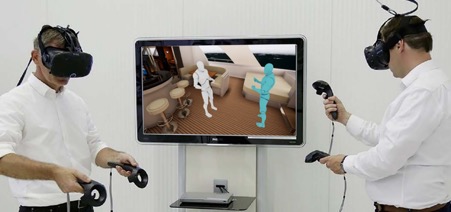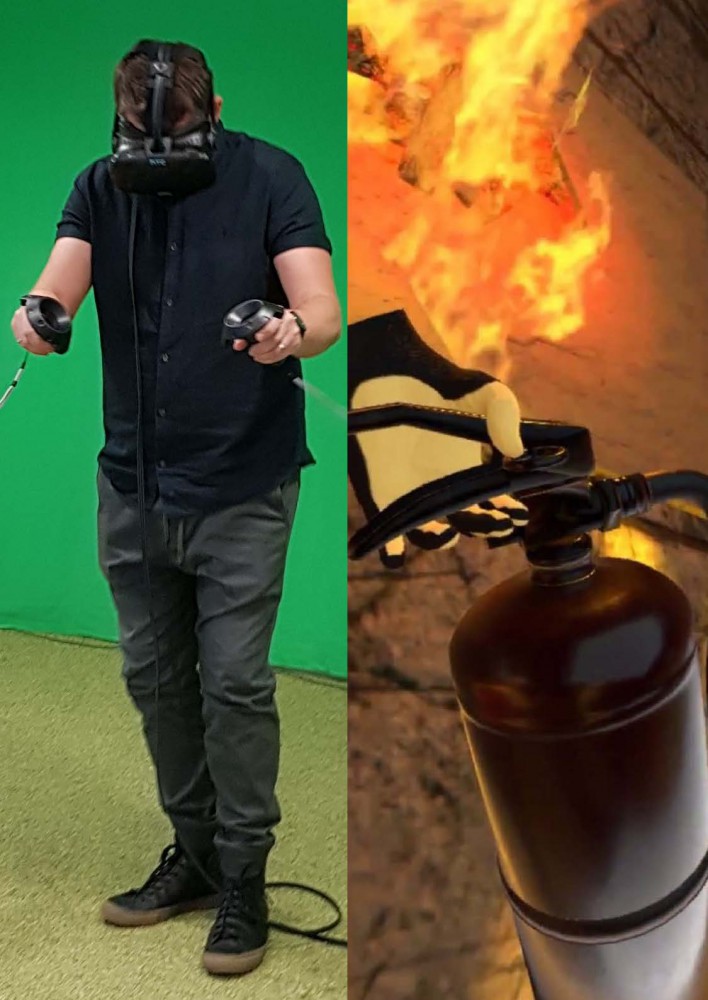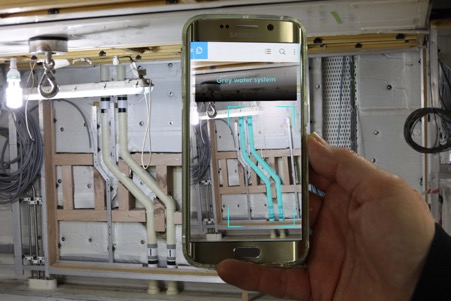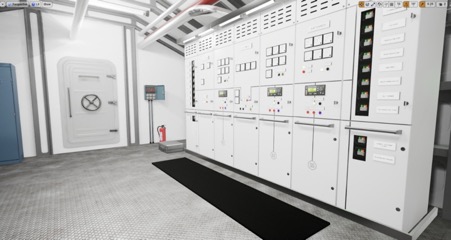Immersive technologies for crew training
Sam Slater, CEO at V360 Marine, explains the benefits of training crew using immersive technologies…
Immersive technologies, such as Virtual Reality, have become much more affordable and accessible in the last few years. Their best well-known application may relate to enhancing gaming experiences, but they are now also emerging as a new training tool for seafarers.
Immersive technologies are generally categorised as Virtual Reality (VR) and Augmented Reality (AR) with everything in between classed as Mixed Reality (MR). VR is a completely digital world – an interactive computer-generated experience in a simulated environment. AR is where the digital world overlaps the real world. An example is ‘Pokemon Go’ where, through a smartphone, the image of the real world has digital images superimposed to make it look like real life.
For decades, trainers have faced a difficult trade-off: how can you adequately prepare learners to make good decisions when facing dangerous or extraordinary situations? You can provide simple learning materials like books and classes, but these are likely inadequate preparation for stressful and highly complex situations. Or you can expose the learners to those situations in live training, but this can be extremely costly, not to mention hazardous. For many jobs and situations, training has long offered an unappealing choice between easy but ineffective, or effective but expensive and risky.
VR promises a third way: a method of training that can break this trade-off of learning and provide effective training in a safe, cost-effective environment applicable to both generic and situation specific training scenarios. The use of virtual and augmented realities for training is gathering pace in many sectors, but would it work for the maritime sector?
Virtual Reality training

The challenge with any form of training is engagement. This is often linked to how realistic it is. If the trainee doesn’t fully engage, then there is less chance of that individual retaining much of the course content, regardless of the subject matter. However, training that uses immersive technology is proven to increase knowledge retention by up to 90 per cent. VR’s immersive experience claims to engage a participant’s auditory, visual and other senses. It mimics the real world and can safely push operational boundaries to crisis point.
V360 Marine, has developed a product that provides the marine and yachting industries with a complete VR kit pre-loaded with a specific training programme made up of both generic and/or ship specific modules, completely tailored to each crew and vessel. An integrated database collects and collates all the data generated during the training and provides an in-depth profile of each crewmember. The system is modular so can be provided with a single yacht familiarisation module for new recruits and have more and more modules added over time making it flexible and cost effective. Examples include:
· Enclosed space entry training: VR sets can add realism to the scenario and allow remote monitoring to ensure that the crew are following procedures and safe practices. The experience can be heightened by having another remote participant introducing commercial pressure and adding additional hazards.
· At sea or in port emergency scenarios: environments can be created that are identical to the yacht’s own systems for remote training and testing. This avoids the need for extensive travel to training centres and unfamiliar mock up simulators.
· Fire training: a virtual replication of the vessel allows for various firefighting scenarios that can be modified mid-exercise to further challenge the trainee. Guest interior – areas that some crew will not be too familiar with.

VR training is also being used by some companies that do not have the resources to develop their own ship simulators. They are attracted by the flexibility of use that VR brings and how a trainer or supervisor ashore can participate in real time, providing support and feedback.
Augmented Reality
A particular application of AR is allowing crew to locate piping systems, electric cable runs and components, AV/IT equipment or other points of interest without removing deckheads, bulkhead panels or floor plates etc. This can be used extensively for familiarisation training and unplanned maintenance where systems can be quickly physically traced on the vessel. Procedures and instructions are called upon through the digital interface making fault finding safer and simpler.

Becoming immersed
Effective training that sticks is an ongoing challenge for the industry. Ship simulators have already proved effective in helping to provide realistic and engaging training, but they remain out of reach for some. The flexibility afforded by VR sets combined with the gamification of learning could prove to be a useful additional training method.
Immersive technologies provide an experience as well as training, meaning certification goes beyond a piece of paper. With the vast majority of incidents across industry, all the personnel involved have been ‘qualified’ for the job and completed the required mandatory training for their role, but things still go wrong. Worryingly, incidents involving confined space entry is on the rise which means we need to do something different. We believe an experience-led approach is the way to go and we can do this effectively using VR and AR technologies.
V360 Marine will be discussing virtual reality and futuristic software at The Superyacht Design Forum 2019, taking place on 25 & 26 June 2019 at Design Centre, Chelsea Harbour, and exploring the question: “Can Virtual Reality & Software improve the way we design and create solutions for the next generation of clients?” Click here to find out more about the event.
Profile links
NEW: Sign up for SuperyachtNewsweek!
Get the latest weekly news, in-depth reports, intelligence, and strategic insights, delivered directly from The Superyacht Group's editors and market analysts.
Stay at the forefront of the superyacht industry with SuperyachtNewsweek
Click here to become part of The Superyacht Group community, and join us in our mission to make this industry accessible to all, and prosperous for the long-term. We are offering access to the superyacht industry’s most comprehensive and longstanding archive of business-critical information, as well as a comprehensive, real-time superyacht fleet database, for just £10 per month, because we are One Industry with One Mission. Sign up here.
NEW: Sign up for
SuperyachtNewsweek!
Get the latest weekly news, in-depth reports, intelligence, and strategic insights, delivered directly from The Superyacht Group's editors and market analysts.
Stay at the forefront of the superyacht industry with SuperyachtNewsweek




